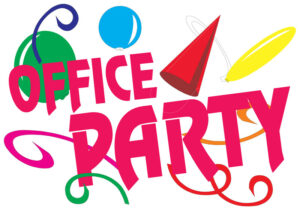Immigration reform has been the hot button topic throughout the country for the past several years and has really intensified under the current Trump Administration. Perhaps nowhere else is this being felt as harshly as in the employment area. There have been Immigration and Customs Enforcement (ICE) raids on employers (large and small), Notice of Inspections by ICE requesting I-9 information from employers, and now a new tactic of trying to locate undocumented aliens is being used; – “No Match” letters from the Social Security Administration (SSA).
What exactly is a “No-Match” letter? It is simply a notification to an employer that the information provided by the employer to the SSA by way of a W-2 Form contains discrepancies between the names and social security numbers on an employee’s W-2 Form and what is contained in the SSA database. On its face, the SSA states that it is only looking to correct its records to ensure that workers are properly credited with earnings records to their SSA accounts for future benefit payouts, and not to identify undocumented workers. There are some very innocent and common errors that can be rectified easily, such as a name change, typographical errors or other mistakes not attributable to data misuse (use of a false social security number). An employer receiving a “No-Match” letter has 60 days to provide the necessary corrections.
While al of this sounds like the government is looking out for employees and trying to ensure they are properly credited with earnings for later social security benefit payments, these “No-Match” letters also have the potential to be used by ICE to seek out undocumented aliens in the workforce. Recently we have seen ICE using facial recognition technology on drivers licenses or other forms of identification to try and determine illegal status. Under current regulations, the SSA may share “No-Match” information with ICE.
What does all this mean for an employer?
Employers should document their efforts to obtain corrected name and/or social security information from employees and retain that information for 3 years. ICE may conduct an audit of an employer at any time and the lack of these steps and records could produce liability from an employer as to its record keeping responsibilities.
Employers should not take disciplinary action, terminate, or otherwise disrupt the employment of identified employees simply because that employee shows up on a “No-Match” list sent by SSA. An employer who discriminates against an employee in such a situation could face civil fines for unlawful immigration related discrimination.
In 2015, the United States Department of Justice published guidance to assist employers when faced with “No-Match” situations:
DO:
- Recognize that name/SSN “no-matches” can result from simple administrative errors;
- Check the reported no-match information against your personnel records;
- Ask the employee to confirm his/her name/SSN reflected in personnel records;
- Advise the employee to contact the SSA to correct and/or update his/her SSA records;
- Give the employee a reasonable time period to address “no-match” issues with the SSA;
- Follow the same procedure for all employees regardless of citizenship status or national origin;
- Review any document the employee chooses to offer showing a resolution of the “no-match”;
- Submit any employer or employee corrections to the SSA.
DON’T:
- Assume the “no-match” conveys information regarding the employee’s immigration status or actual work authority;
- Use the receipt of a “No-Match” letter alone as a basis to terminate, suspend or take other adverse action against the employee;
- Attempt to immediately reverify the employee’s employment eligibility by requesting completion of a new Form I-9 based solely on the no-match notification;
- Follow different procedures for different classes of employees based on national origin or citizenship status.
Due to the sensitive nature of the workplace issues involved, employers should take receipt of “No-Match” letters seriously and work with experienced labor and employment counsel such as Boznos Law to develop a measured and appropriate response plan.
With over 34 years’ experience in advising employers and employees on workplace issues, let Boznos Law work with you to ensure you are ready to meet the challenges posed by the changes to the employment laws. Call Bill Boznos today at (630) 375-1958 or contact us at www.boznoslawoffice.com/contact-us through our website.


